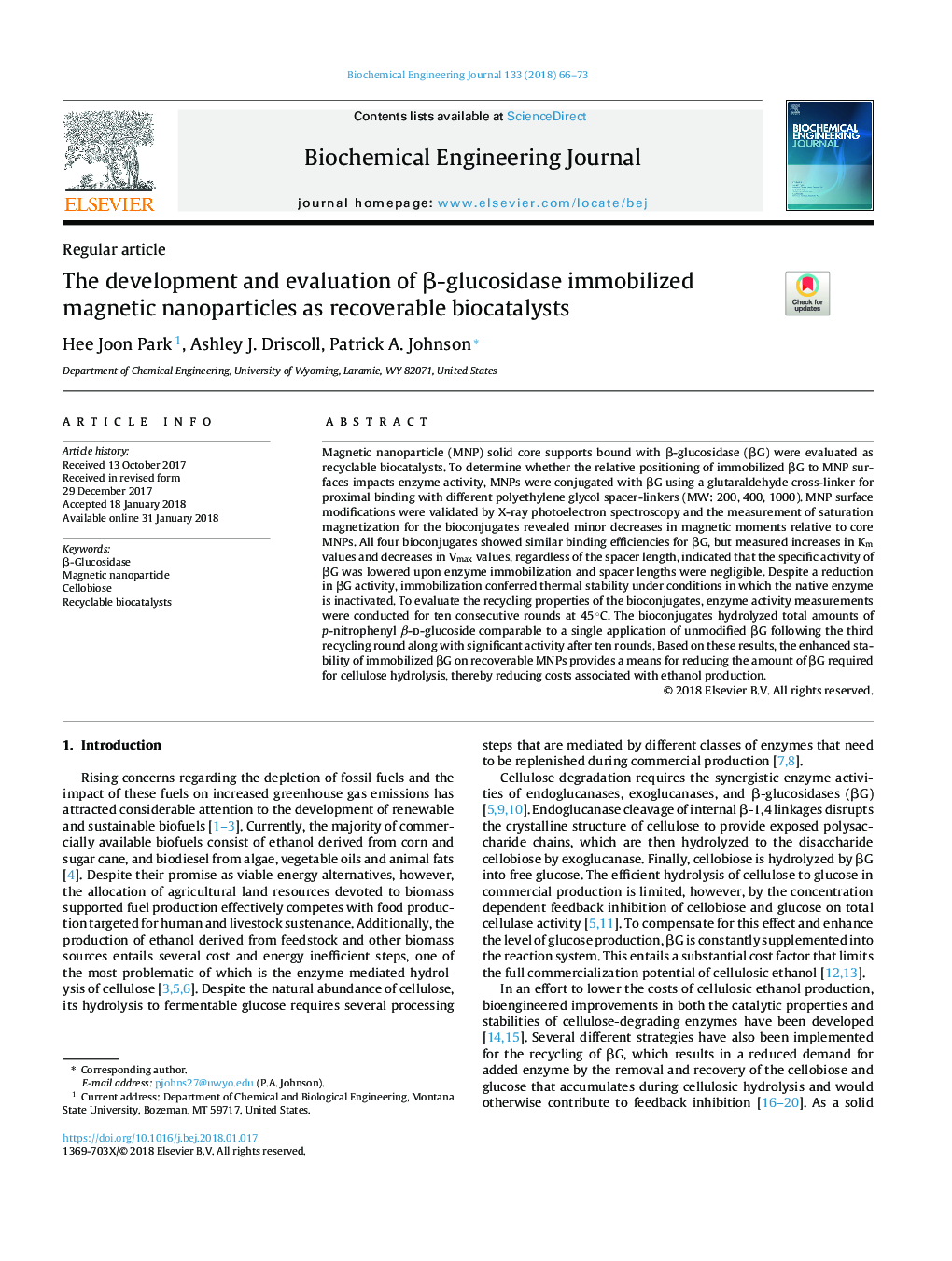| Article ID | Journal | Published Year | Pages | File Type |
|---|---|---|---|---|
| 6482229 | Biochemical Engineering Journal | 2018 | 8 Pages |
Abstract
Magnetic nanoparticle (MNP) solid core supports bound with β-glucosidase (βG) were evaluated as recyclable biocatalysts. To determine whether the relative positioning of immobilized βG to MNP surfaces impacts enzyme activity, MNPs were conjugated with βG using a glutaraldehyde cross-linker for proximal binding with different polyethylene glycol spacer-linkers (MW: 200, 400, 1000). MNP surface modifications were validated by X-ray photoelectron spectroscopy and the measurement of saturation magnetization for the bioconjugates revealed minor decreases in magnetic moments relative to core MNPs. All four bioconjugates showed similar binding efficiencies for βG, but measured increases in Km values and decreases in Vmax values, regardless of the spacer length, indicated that the specific activity of βG was lowered upon enzyme immobilization and spacer lengths were negligible. Despite a reduction in βG activity, immobilization conferred thermal stability under conditions in which the native enzyme is inactivated. To evaluate the recycling properties of the bioconjugates, enzyme activity measurements were conducted for ten consecutive rounds at 45â¯Â°C. The bioconjugates hydrolyzed total amounts of p-nitrophenyl β-d-glucoside comparable to a single application of unmodified βG following the third recycling round along with significant activity after ten rounds. Based on these results, the enhanced stability of immobilized βG on recoverable MNPs provides a means for reducing the amount of βG required for cellulose hydrolysis, thereby reducing costs associated with ethanol production.
Related Topics
Physical Sciences and Engineering
Chemical Engineering
Bioengineering
Authors
Hee Joon Park, Ashley J. Driscoll, Patrick A. Johnson,
